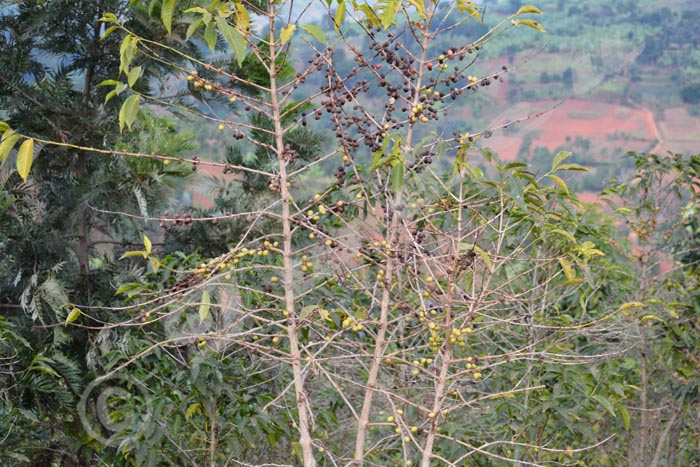The World Bank has forced Burundi government to privatize the coffee industry. With private managers advancing their own interests, millions of farmers continuously lose their once main source of income.

The gradual decline of coffee production and the low returns make the situation of millions of Burundians worrying
Privatization of the coffee sector in Burundi continues to bring woes to farmers. The latter fear coffee production will be worse this year. They complain that INTERCAFE (a private authority in charge of consultation between coffee producers, middlemen and exporters) has been late in providing them with pesticides and fertilizers.
“All Burundian coffee farmers did not get fertilizers. Neither have we got pesticides for the second phase of coffee spraying. All this happens while we, farmers, are made to pay 60% of the products’ price”, says Joseph Ntirabampa, the chairman of CNAC MURIMA W’INSANGI, a collective of associations of coffee farmers of Burundi.
Speaking on behalf of INTERCAFE, Oscar Baranyizigiye denies responsibility and says the delay was ultimately due to the lack of foreign currencies by importers of the products.
The representative of Burundian coffee farmers demands that INTERCAFE stops deducting the cost of the products from the farmers’ share. He wants farmers themselves to be allowed to directly buy fertilizers and phytosanitary products.
The importance of coffee in the Burundian national economy cannot be overestimated. Being particularly appreciated on the international market, Burundian coffee provides more than 50% of export revenues. It is also a source of living for roughly 600.000 households of over 4 million people, mainly peasants.
Despite its importance, the coffee sector suffers from an increasing decline. A study conducted in 2012 showed that coffee production decreases by 40% every year.
The causes of the decline include among others, the lack of interest of farmers partly due to poor returns from their crops and the lack of backing and supervision. The lack of fertilizers and pesticides also has a lot to do with the drop in production.
World Bank is to blame
The current problem of lack of fertilizers and phytosanitary products and the decline in returns are due to the privatization of the coffee sector imposed on the government of Burundi by the World Bank.
The privatization made the situation of coffee farmers even worse as it excluded them from the sector and put almost all coffee washing stations and the trading in the hands of foreign firms like Webcor and Armanjaro.
Now the chairman of CNAC asks the government to sell the remaining washing stations to Burundians.
In 2013, two Special Rapporteurs of the High Commissioner for Human Rights, Cephas Lumina and Olivier De Schutter deplored the fact that the privatization of the coffee industry had a potential negative impact on farmers.
“There are worrying signs that the interests of coffee farmers have not been taken into account in the reform process despite the opening of coffee farmers’ organizations to a reform of the sector which would allow them to move up the value chain”, said the experts.
The President of Burundi, Pierre Nkurunziza, has recently regretted that “the population suffers from the reforms of the coffee sector” because the private managers of the sector have sought their interests over the farmers’.
The two UN rapporteurs regretted “that the Bank continues to consider that it is not required to take human rights into account in its decision-making processes, whereas the policies it recommends have very concrete impacts on the rights and Livelihoods of coffee farmers ”
The chairman of CNAC asks that the government and other actors of the coffee industry jointly evaluate the outcomes of the privatization of the industry.
Burundi President, Pierre Nkurunziza, said efforts to reshape and reinvigorate the sector are being made.


















 IWACU Open Data
IWACU Open Data

